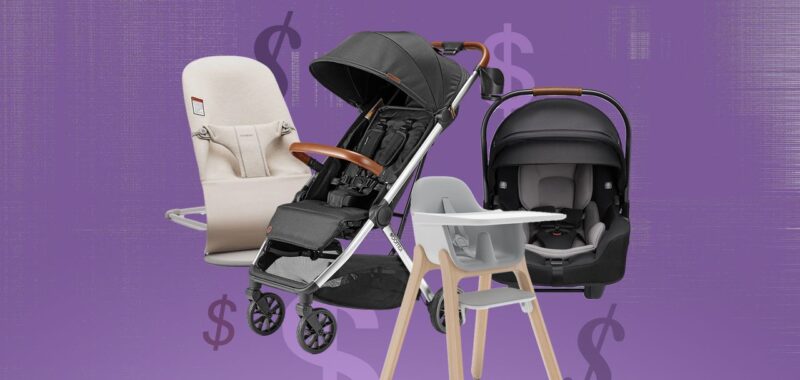“There was a lot of rhetoric during the campaign about making it easier to have babies in our country. And boy, the policy is not matching the rhetoric,” she says. “If anything, we’re making it much harder to raise a family in the United States. We already make it so hard…we’re rolling back reproductive rights. We don’t offer paid family leave in the United States, and now we’re just going to pile on new expenses.”
Morrison, along with nearly 50 other Democratic lawmakers, sent a letter on April 1 to commerce secretary Howard Lutnick, asking him to exempt essential baby items from the price hikes.
“For parents, car seats, highchairs, strollers, and cribs are not optional purchases – they are necessities,” they wrote. “American families should not be forced to choose between their livelihoods and reliance on poor quality baby gear.”
The consequences are also hitting small business owners in the parenting space, a category which is made up of many women entrepreneurs. When Kelsey Nolan set out with her partners to create her start-up stroller company, Bombi Gear, in 2021, they dreamed of a brand that would be high-quality, eco-friendly, but also affordable. And until now, they had been able to fulfill their goal, selling their strollers at under $200 and finding success.
TikTok content
This content can also be viewed on the site it originates from.
Then, the tariffs hit. As a brand who manufactures in China, Bombi had no choice but to raise prices from $199 to $225 for their single stroller, which Nolan said hit like a gut punch.
“We’ve worked so hard to get here and to see all of these tariffs happen, something that’s completely out of our control, just impacting our business so catastrophically is heartbreaking,” she tells Glamour. “It’s like, this is everything we’ve worked for. This is everything we’ve built. To have no control over it is just devastating.”
But for parents panicking on this cascade of new expenses, there are ways to mitigate the high costs. Mainly, shopping secondhand, a trend that the registry website Babylist was already observing before the tariffs were announced. According to its vice president of media and brand, Molly Goodson, 67% of parents they recently polled were planning on shopping used as a way to save on big-ticket items. The website also recently launched a feature where parents can mark whether they are open to secondhand items on certain gifts, helping family and friends save as well.
It’s also smart to curate your wish list to items you absolutely need rather than simply want, says Sara Adam Slywka, the co-founder of the baby furniture brand Nestig. She suggests seeking out products that can be used for a majority of a child’s life, like a bassinet that converts to a crib or a dresser that can be used for years.
“Focus on items designed to grow with your child and provide long-term value, so you don’t have to continually purchase new items, especially in an environment of price uncertainty,” she tells Glamour.

